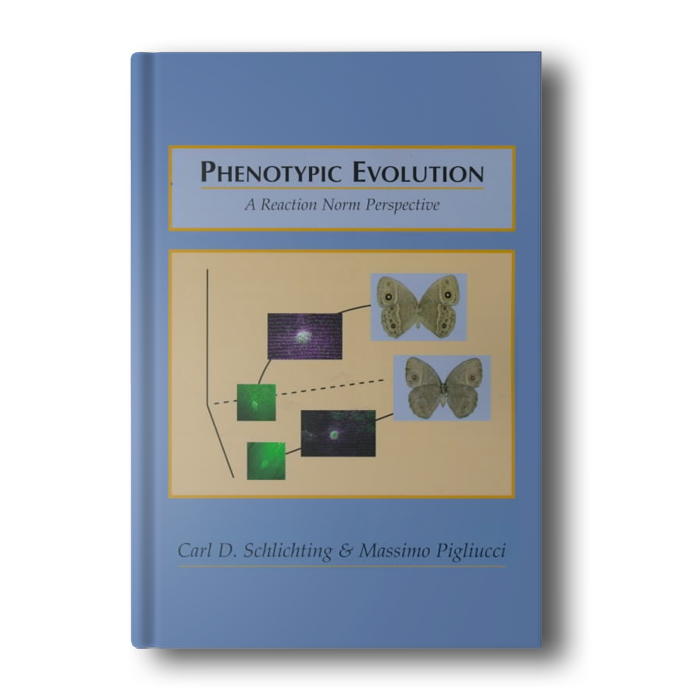Understanding the process of adaptive evolution of phenotypes is a fundamental problem in evolutionary biology. It has been approached from the point of view of population and quantitative genetics, optimality theory, or developmental biology. In the last decade, there has been an explosion of research on phenotypic plasticity (the environmentally induced production of different phenotypes by a single genotype) as well as on the molecular details of development, reflecting the increased recognition of their importance in shaping phenotypic evolution.
However, the “hardening” of the neodarwinian synthesis in the ’40s led to the largely independent investigation of genetic, developmental and environmental bases of phenotypic expression. As a result, these different perspectives have not been integrated into a satisfying cohesive view of phenotypic evolution.
Phenotypic Evolution explicitly recognizes organisms as complex genetic-epigenetic systems developing in response to changing internal and external environments.
As a key to a better understanding of how phenotypes evolve, the authors have developed a framework that centers on the concept of the Developmental Reaction Norm. This encompasses their views: (1) that organisms are better considered as integrated units than as disconnected parts (allometry and phenotypic integration); (2) that an understanding of ontogeny is vital for evaluating evolution of adult forms (ontogenetic trajectories, epigenetics, and constraints); and (3) that environmental heterogeneity is ubiquitous and must be acknowledged for its pervasive role in phenotypic expression. Phenotypic Evolution: A Reaction Norm Perspective can serve as a text for graduate-level courses and seminars on phenotypic evolution or evolutionary developmental biology, and as a supplemental text for evolutionary biology.
The extensive references provide links to a wide variety of studies examining the diversity of phenotypes. The book will also be of interest to organismal biologists in general, including ecologists, developmental biologists, and systematists.















Reviews
There are no reviews yet.